Land Of The ‘King And I’
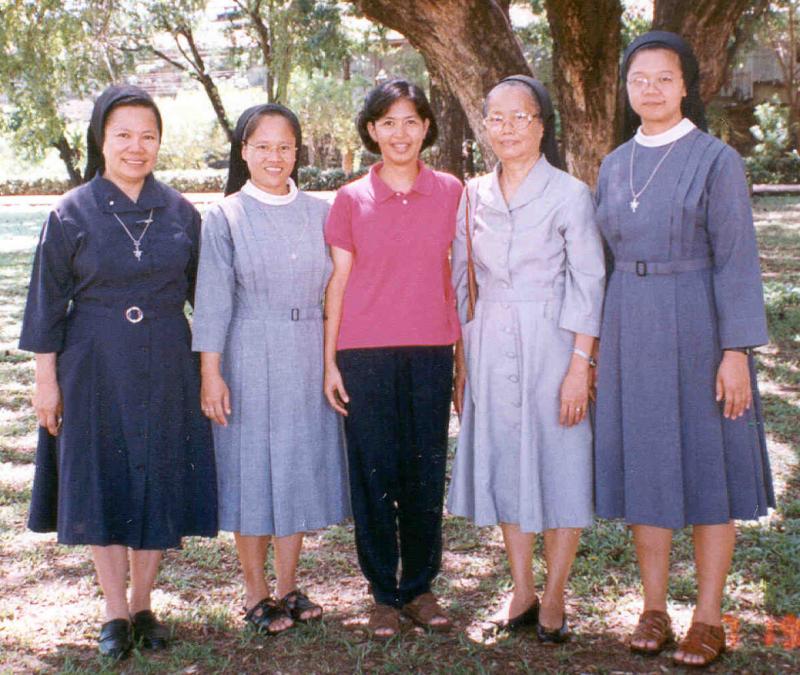
By Gee-Gee O. Torres

By Gee-Gee O. Torres
By Sr. Ching Madduma icm
Something beautiful is happening in villages along the Ganges River. It takes a Filipino to come up with something as noble as Sr. Ching came up with to help mentally handicapped people – these people who are quite normal in all other ways but mentally slow. As a result they have been relegated to a world of shadows. Sr. Ching has reinvented street drama to be performed by the people themselves in order to educate the populace to a more human attitude. Here we publish some photos of her pioneering dramas done along the villages of the Ganges River.
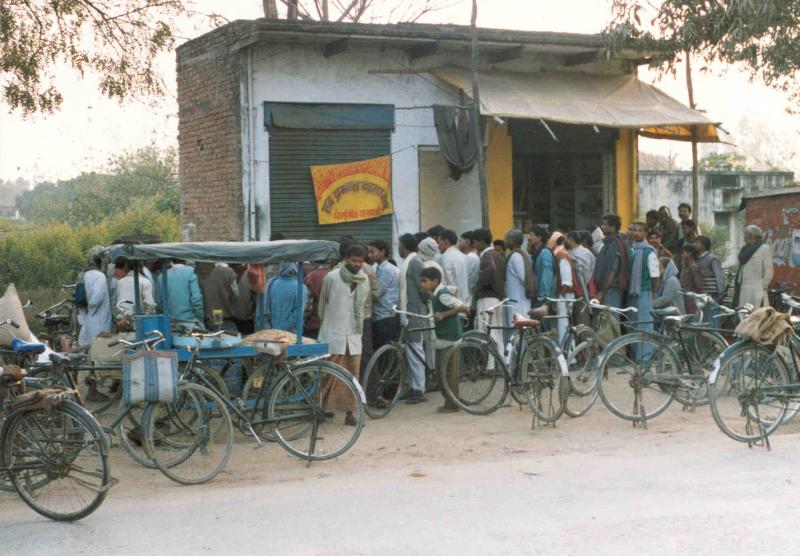
By Annabelle Badilla
Everyone was quiet and solemn watching the young priest lie face-down on the floor while the choir was singing the litany of the saints. Then afterwards all the priests present laid their hands on Ricci’s head, passing on to him the power of priesthood.
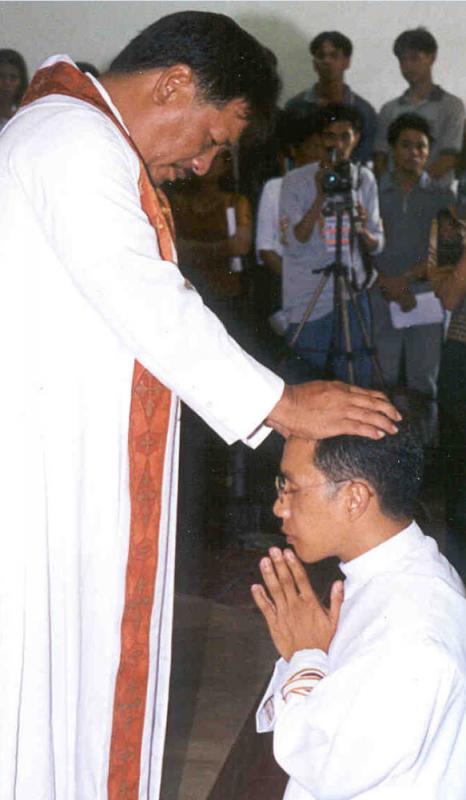
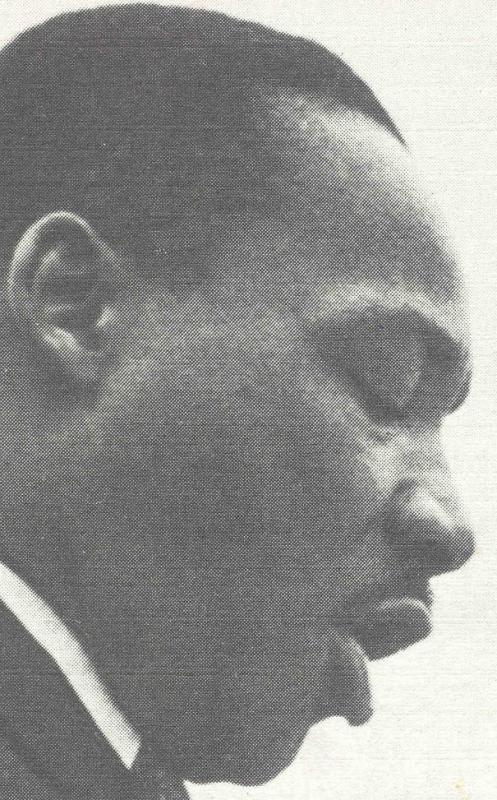 Recently the Holy Father has cited Martin Luther King, the apostle of nonviolence, as one of the Martyrs of the 20th century. Here is a timely reflection on his life. (Ed)
Recently the Holy Father has cited Martin Luther King, the apostle of nonviolence, as one of the Martyrs of the 20th century. Here is a timely reflection on his life. (Ed)
From 1929 to 1968 is only 39 short years.
Too short to gather the fruits of your labor.
Too short to comfort your parents when your brother drowns.
Too short to comfort your father when mother dies.
Too short to see your children finish school.
Too short to ever enjoy grandchildren.
Too short to know retirement.
Thirty-nine years is just too short.
From 1929 to 1968 is only 39 short years,
yet it's too long to be crippled by the manacles of segregation and the chains of discrimination.
By Mercedes Jaudines
Millions of Filipinos are working abroad hoping to help their families. To cope with their loneliness in a foreign land, some fix their attention on their work and some dedicate themselves in Filipino-organized activities.
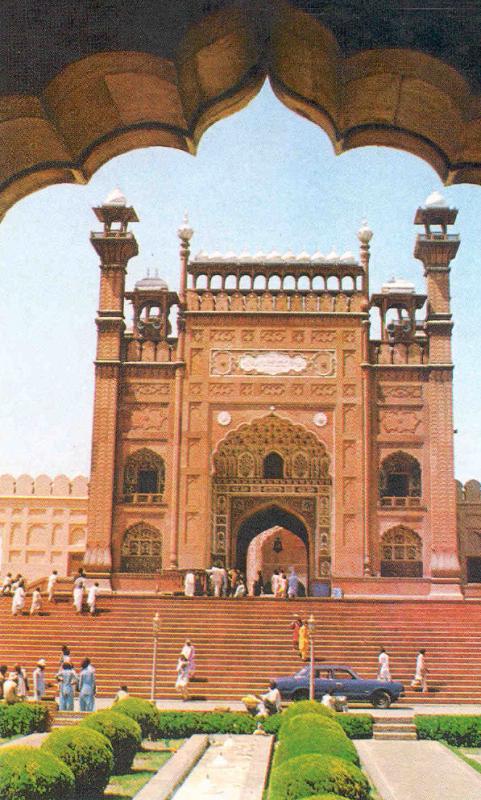
An interview with Russian dissident Alexander Ogorodnikov
Alexander Ogorodnikov was born in the Soviet Union in 1950. At age 17, he was a lathe operator at a clock factory. Three years later he began philosophy studies at the University of the Urals in Sverdlovsk, only to be expelled in 1971 for “a dissident way of thinking”. He then went to Moscow where he studied at the Institute of Cinematography. He founded the Christian Seminary in 1974. From 1978 he was a prisoner, finally released at the order of Gorbachev. Since his return to Moscow, he founded the Christian-Democratic Union of Russia and the Christian Mercy Society, a group assisting the hungry and homeless with a special concern for children and adolescents. The group following conversation with him was recorded in Amsterdam on April 25 following the Liturgy at St. Nicholas of Myra Russian Orthodox Church.

By Sr. Mary Hermenegildis sspsap
In 1923 Bishop Alfredo Versoza invited our congregation to establish a convent and chapel of Perpetual Adoration in Lipa. Mother Mary Michael Sent 10 German Sisters. Here, our Sisters prayed, worked and sacrificed in order to fulfill their mission: more priests for the Philippines. However, unaccustomed to the tropical heat, the Sisters continued their Eucharistic apostolate in a cooler Climate since their health suffered considerably.
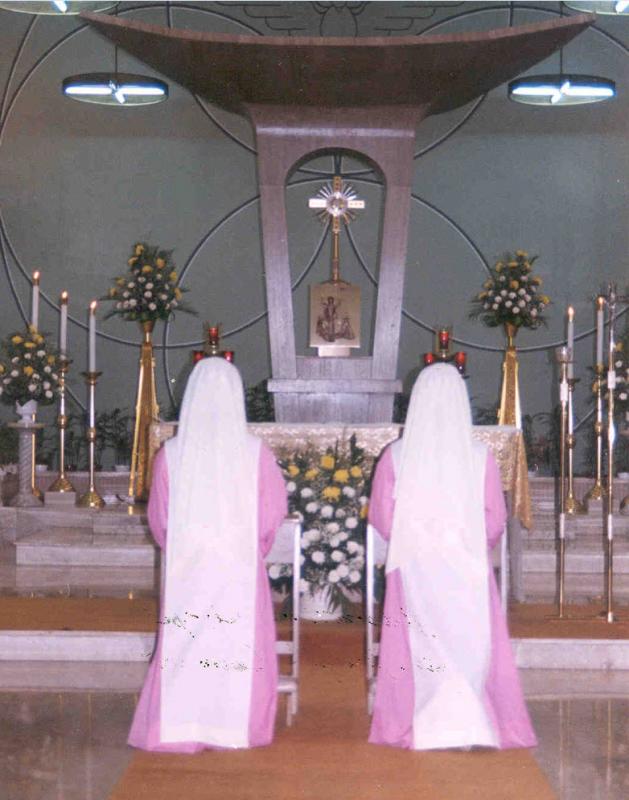
By Fr. Dave Cribbin mssc
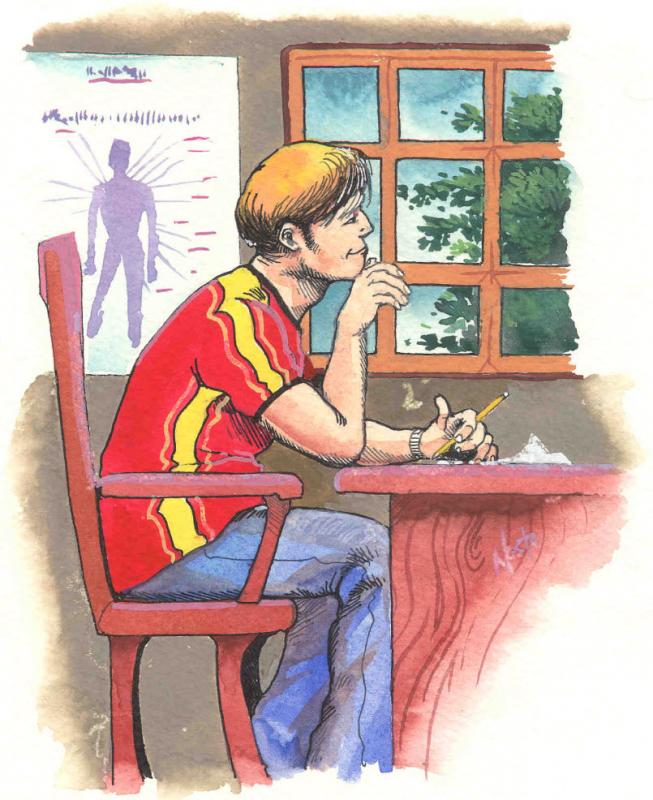 Between the ages of 10 and 17 my ambition in life changed many times, from truck driver to scientist, to photographer, to engineer, policeman, soldier – until one day I came home from high school and told my family that I was going to join the Columbans and become a missionary priest.
Between the ages of 10 and 17 my ambition in life changed many times, from truck driver to scientist, to photographer, to engineer, policeman, soldier – until one day I came home from high school and told my family that I was going to join the Columbans and become a missionary priest.
They could not believe my decision and in fact they even found it amazing. Because especially during my high school years I was never what you might call a religious person. In fact, each Sunday morning my parents had to pull me out of bed to attend Mass. I went but it was against my will. So you might ask why this sudden interest in becoming a missionary priest. What happened to me?
By Fr. John Keenan mssc
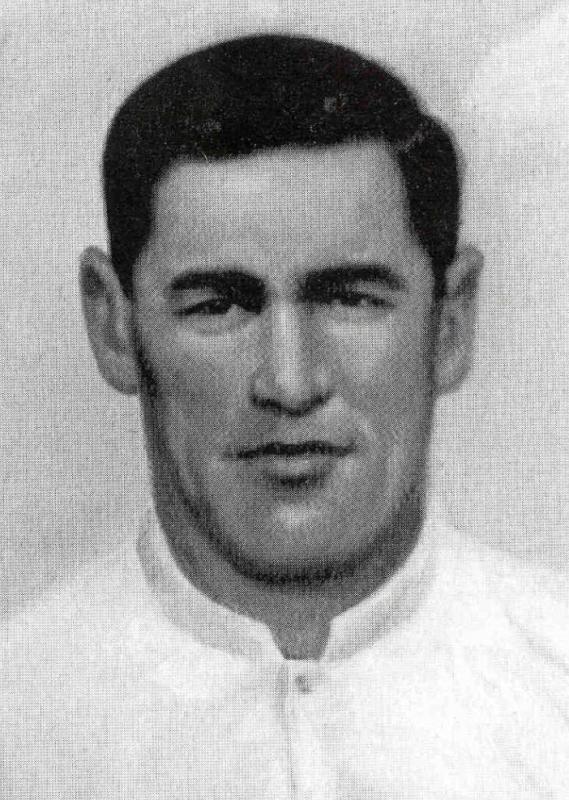 As a new century and a new millennium begins, Pope John Paul II is anxious that the lives and deaths of those who suffered and died heroically in the service of others be recorded and documented. The sufferings and death of Fr. Francis Vernon Douglas at the hands of the Japanese Military Police in the Philippines during World War II is one story that must not be forgotten. Fr. John Keenan, a Columban missionary from Ireland, tells us about it.
As a new century and a new millennium begins, Pope John Paul II is anxious that the lives and deaths of those who suffered and died heroically in the service of others be recorded and documented. The sufferings and death of Fr. Francis Vernon Douglas at the hands of the Japanese Military Police in the Philippines during World War II is one story that must not be forgotten. Fr. John Keenan, a Columban missionary from Ireland, tells us about it.
Fr. Douglas was tortured and is thought to have died near Paete, Laguna, in July 1943. Paete is a quiet country town nestled between the foothills of the Sierra Madre Mountains and Laguna de Bay, about 115 kms from Manila. Founded as a Christian settlement around 1580, its inhabitants are famous for their woodcarving skills.
By Cora Llamas
Missionary priest Fr. Jimmy Aguilar brings the Catholic faith to war-torn, poor communities of South America, where kidnapping, torture and violent death are a way of life. Fr. Demetrio “Jimmy” Aguilar’s faith has been tested by fire. Literally, and several times. As a foreign missionary of the Society of Divine Word (SVD), he has faced narco-terrorism in Colombia, endured Panama’s persecution of its Catholic Church, and stood with the people as the US troops rained fire on a dictator’s stronghold. In his service in God’s kingdom, this priest was almost killed twice. And at one point in his life, he lived with the knowledge that he could be arrested and killed without due process of law at anytime.
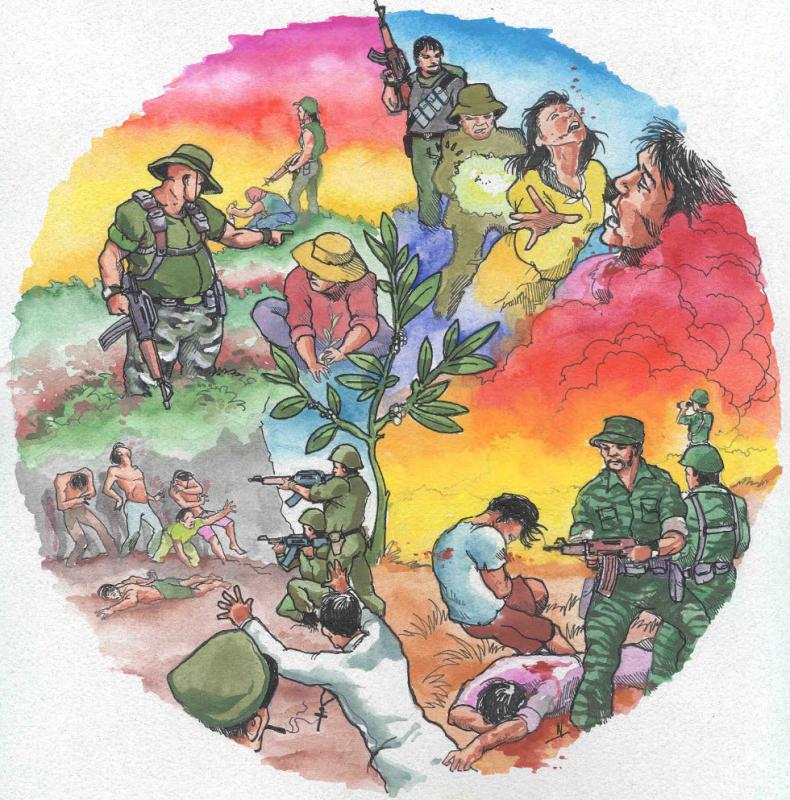
By Fr. Sean McDonagh mssc
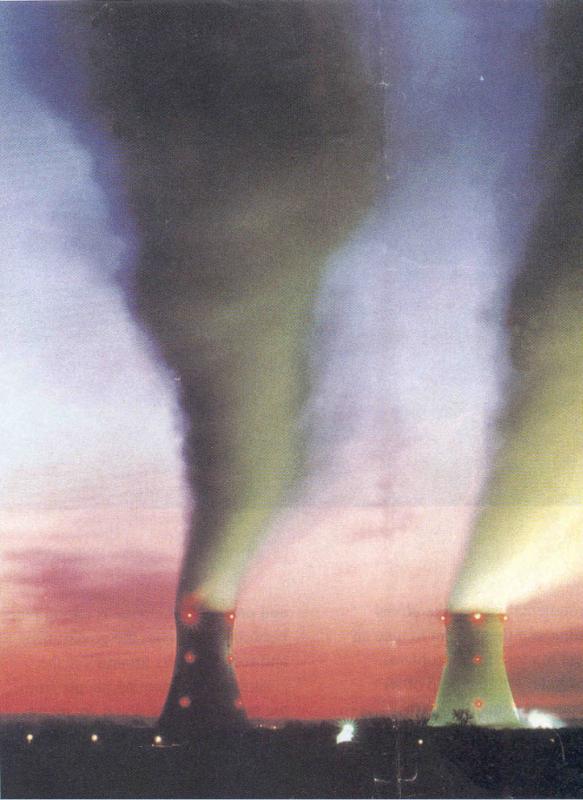 If asked to list the problems that need urgent attention in the world today few people would name global warming. One of those who did, back in 1990, was Pope John II when he warned that the “greenhouse effect” had reached crisis proportions. This is not a solitary or alarmist voice. Other people, especially scientists, are also extremely worried abut the long-term effect of global warming on the planet and the peoples of the earth. In the run up to the Climate Conference held in Kyoto, Japan, in 1997 more than 1,500 of the world’s most distinguished scientists signed a declaration urging leaders to act immediately to prevent the “potentially devastating consequence of global warming.”
If asked to list the problems that need urgent attention in the world today few people would name global warming. One of those who did, back in 1990, was Pope John II when he warned that the “greenhouse effect” had reached crisis proportions. This is not a solitary or alarmist voice. Other people, especially scientists, are also extremely worried abut the long-term effect of global warming on the planet and the peoples of the earth. In the run up to the Climate Conference held in Kyoto, Japan, in 1997 more than 1,500 of the world’s most distinguished scientists signed a declaration urging leaders to act immediately to prevent the “potentially devastating consequence of global warming.”
While life would not be possible without a warm atmosphere the appropriate temperature balance is a delicate one. The present problem has its roots in the huge increase in the burning of fossil fuel which began with the industrial revolution in the second half of the last century. The multiplication of industries meant the release of greenhouse gases into the atmosphere. (These are gases which produce an effect somewhat similar to that of glass in the greenhouse, Ed.) Scientists estimate that the levels of carbon dioxide, one of the most important greenhouse gases, has increased by 255 since the beginning of the industrial revolution. Unless drastic action is taken a further 30% increase is expected in the next 50 years. This could lead to an average increase of between 1.5 and 4.5 degrees celsius in global temperatures by the year 2030.

For some time we have been asked to put in Misyon a section on Questions which our readers would like raised. We are not too sure how appropriate our suitable this is, so please let us know if these questions have been of any help to you. We are calling this article To Search is to Find because we do not have the answers to every question in the universe – but the very asking of the question is the beginning of the answer.

Misyon sometimes contains stories of tribal people. Are these people not happier left to themselves? Sometimes their cultural and religious practices are more environmentally friendly than our own.
You have two questions here. Yes, they might be happier left on their own. No one can really tell. But in today’s world inevitably they will be invaded by the 21st century. Which is better: to be made feel small, ridiculous, irrelevant and uneducated by the shining consumer culture of the West or to be made feel the dignity of being the children of God and the brothers and sisters of Jesus with the true hope of Life? That is what the Good News offers them. Apart from that as Christians we are bound to share the Good News. Someone once describe a missionary one who comes when he is not wanted and leaves when he is wanted. It is quite true that tribal people often have very environmentally friendly cultures and we should be ready to learn from them. I think that is what Misyon tries to do.
| Father Joker | (80) |
| Our Hideaway | (74) |
| Pulong ng Editor | (48) |
| Peace by Peace | (47) |
| To Search is to Find | (37) |
| Your Turn | (35) |
| From the Editor | (3) |
| Misyon View | (2) |
| Teachers' Guide | (2) |
